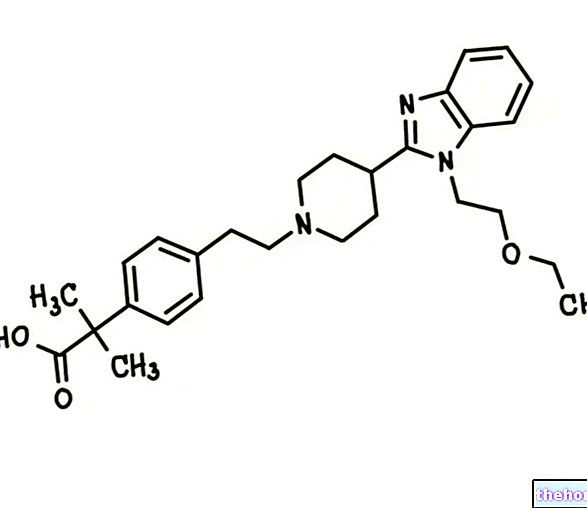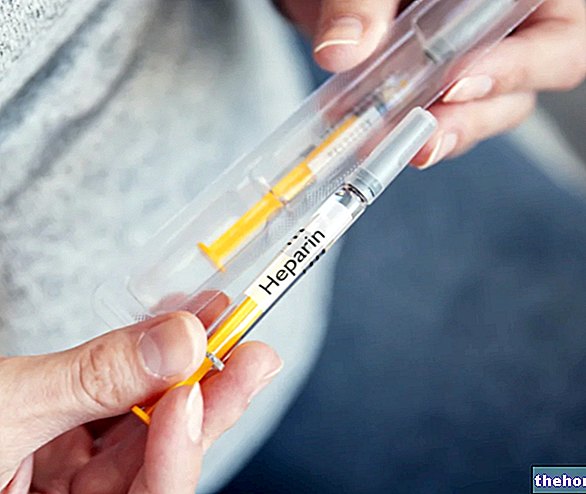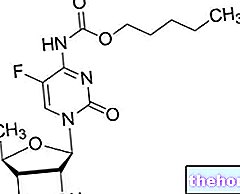
What is Rivastigmine Hexal?
Rivastigmine Hexal is a medicine that contains the active substance rivastigmine. It is available as capsules (yellow: 1.5 mg; orange: 3 mg; red: 4.5 mg; red and orange: 6 mg) and as an oral solution (2 mg / ml).
This medicine is the same as Exelon capsules and oral solution, which is already authorized in the European Union (EU). The company that makes Exelon has agreed that its scientific data are used for Rivastigmine Hexal (“informed consent”).
What is Rivastigmine Hexal used for?
Rivastigmine Hexal is used to treat patients with mild to moderately severe Alzheimer's type dementia, a progressive brain disease that gradually affects memory, intellectual capacity and behavior. Rivastigmine Hexal is also used for the treatment of mild to moderately severe dementia in patients with Parkinson's disease.
The medicine can only be obtained with a prescription.
How is Rivastigmine Hexal used?
Treatment with Rivastigmine Hexal should be initiated and supervised by a physician experienced in the diagnosis and treatment of Alzheimer's disease or dementia associated with Parkinson's disease. Therapy should only be started if a person who is habitual caring for the patient is available who regularly checks the patient's intake of Rivastigmine Hexal. Treatment should continue as long as the medicine produces a beneficial effect, but the dose can be reduced. o discontinue therapy if the patient experiences undesirable effects.
Rivastigmine Hexal should be administered twice a day, with breakfast and dinner. The capsules must be swallowed whole. The starting dose is 1.5 mg twice a day. If this dose is well tolerated, it can be increased in increments of 1.5 mg at intervals of not less than two weeks to a regular dose of 3-6 mg twice daily. For maximum benefit it is recommended to use the highest tolerated dosage, but not to exceed 6 mg twice daily.
How does Rivastigmine Hexal work?
Alzheimer's type dementia or dementia due to Parkinson's disease, some nerve cells die in the brain resulting in lower levels of the neurotransmitter acetylcholine (a chemical that allows nerve cells to communicate with each other). Rivastigmine works by blocking the enzymes that break down acetylcholine: acetylcholinesterase and butyrylcholinesterase. By blocking these enzymes, Rivastigmine Hexal promotes an increase in acetylcholine levels in the brain, which helps reduce the symptoms of Alzheimer's-type dementia and Parkinson's disease dementia.
How has Rivastigmine Hexal been studied?
Rivastigmine Hexal has been studied in three main studies involving 2,126 patients with mild to moderately severe Alzheimer's type dementia. Rivastigmine Hexal has also been studied in 541 patients with dementia due to Parkinson's disease. All the studies lasted six months and compared the effects of Rivastigmine Hexal with those of placebo (a dummy treatment). The main indicators of effectiveness were the change in symptoms in two main domains: cognitive (the ability to think, learn and remember) and global (a combination of different domains including general functioning, cognitive symptoms, behavior and ability to carry out daily activities).
A further study in 27 patients showed that Rivastigmine Hexal capsules and oral solution produce similar levels of the active substance in the blood.
What benefit has Rivastigmine Hexal shown during the studies?
Rivastigmine Hexal was more effective than placebo at controlling symptoms. In the three studies of Rivastigmine Hexal in patients with Alzheimer's-type dementia, patients taking Rivastigmine Hexal doses between 6 and 9 mg per day had an average increase in cognitive symptoms of 0.2 points from baseline levels of 22. , 9 points at the start of the study, where a lower score indicates better performance. This was compared with an increase of 2.6 points compared to 22.5 in patients treated with placebo. Regarding the overall score, Patients taking Rivastigmine Hexal experienced a 4.1 point increase in symptoms compared to 4.4 in patients taking placebo.
Patients with dementia due to Parkinson's disease taking Rivastigmine Hexal capsules showed an improvement in cognitive symptoms of 2.1 points compared to a worsening of 0.7 points in those taking placebo, starting from a baseline of approximately 24 points . In addition, the overall symptom score improved more in patients taking Rivastigmine Hexal.
What are the risks associated with Rivastigmine Hexal?
The types of side effects experienced with Rivastigmine Hexal depend on the type of dementia being treated. In general, the most frequent side effects (seen in more than 1 in 10 patients) are nausea and vomiting, particularly when increasing the dose of Rivastigmine Hexal. For the full list of side effects reported with Rivastigmine Hexal, see the Package Leaflet.
Rivastigmine Hexal should not be used in people who may be hypersensitive (allergic) to rivastigmine, other carbamate derivatives or any of the other substances. It must not be used in patients with severe liver problems.
Why has Rivastigmine Hexal been approved?
The Committee for Medicinal Products for Human Use (CHMP) concluded that Rivastigmine Hexal has modest efficacy in treating the symptoms of Alzheimer's-type dementia, although it does indeed show significant benefit in some patients. The committee initially concluded that in the treatment of dementia due to Parkinson's disease, the benefits of Rivastigmine Hexal do not outweigh its risks. However, following a re-examination of this opinion, the Committee concluded that the modest efficacy of the medicine could have beneficial effects in some patients.
Therefore, the Committee decided that the benefits associated with Rivastigmine Hexal are greater than its risks in the treatment of mild to moderately severe Alzheimer's type dementia and mild to moderately severe dementia in patients with idiopathic Parkinson's disease. The committee recommended that Rivastigmine Hexal be given marketing authorization.
Other information about Rivastigmine Hexal
On 11 December 2009, the European Commission granted Hexal AG a "marketing authorization" for Rivastigmine Hexal, valid throughout the European Union. The "marketing authorization" is valid for five years and after this period it can be renewed.
For the full version of the Rivastigmine Hexal EPAR, click here.
Last update of this summary: 10-2009.
The information on Rivastigmine Hexal published on this page may be out of date or incomplete. For a correct use of this information, see the Disclaimer and useful information page.




























